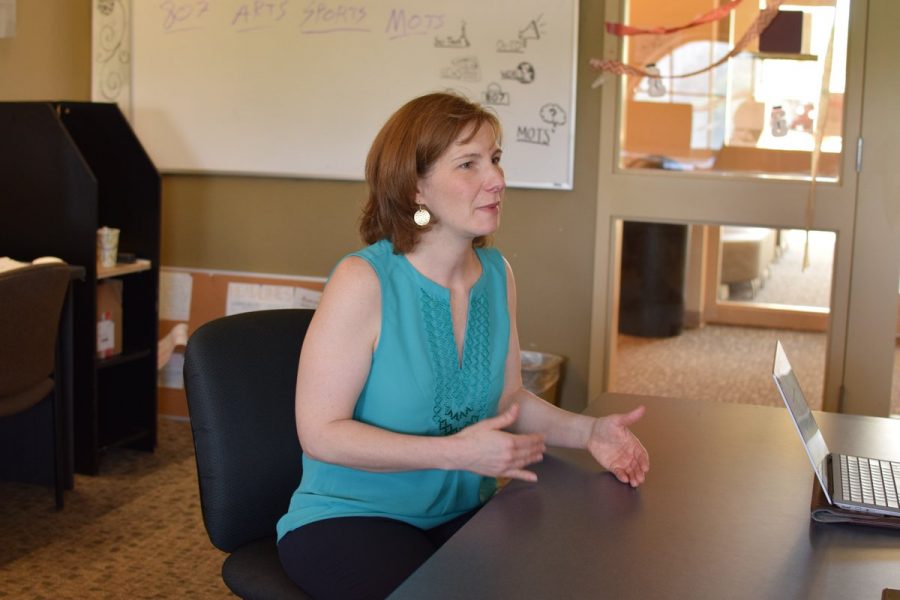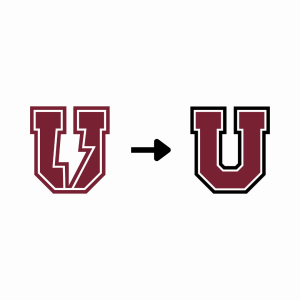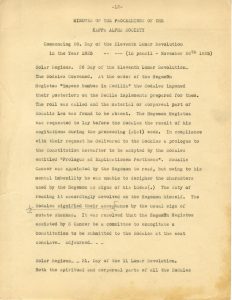Michelle Ostrelich Comes to Union to Give Advice of Grassroots Campaigns
October 25, 2018
New York State’s District 49 Democratic Candidate Michelle Ostrelich came spoke to students, faculty and members of the Schenectady community in Karp on Monday, October 22 about grassroots political movements.
Ostrelich started off by stating that she feels that the United States is in a “period of time unlike any other.” In her eyes, the increase in political involvement and the amount of turnover happening is unprecedented.
“It’s not an understatement to say that the world is watching these midterm elections and these past two years have been leading up to a lot of grassroots movements and I’m a part of that,” Ostrelich said.
In describing the steps she sees as necessary for change, she shared her own political history and the decisions that inspired her candidacy.
According to her, the first step in change is being able to identify a problem and emphasize with people who are suffering, even if they come from different backgrounds than you or have a different experience.
The next step is to take action.
After the 2016 elections Ostrelich began this process. She identified a problem in the Republican Party which she had up until then been a part of, believing herself to be a moderating force. She saw the leaders use racist and hateful speech. She decided to organize a bus to bring of people in her community to the Women’s March in New York City to protest this shift in political rhetoric, as well as advocate their political beliefs.
Ostrelich described a specific moment when she was standing in front of Grand Central Station and looking out at everyone in the March who had made signs and came out to share their values.
“I realized in that moment we had each other’s backs… When we can get together in numbers like that, show up, be positive, have each other’s backs, we are a force to be reckoned with.” The group of people she was working with and her identified Jim Tedisco ’73 as a specific candidate that they believed did not shared their beliefs.
Shortly after this, she came to the conclusion that the change she wanted to see in local government was not going to happen unless there were new representatives.
“It’s not as such as change as it is finding folks who represent you on a state and local level,” Ostrelich said.
Ostrelich also made a point to say that she did not believe that every representative needed to be replaced. She identified Senator Kirsten Gillibrand as an example of an incumbent she supported.
Ostrelich joined a search committee that sought out local, non political leaders to run for politics. After interviewing 20 potential candidates, none of whom agreed to run for various reasons, she decided to enter politics herself.
She emphasized the resources that exists now to train people to run in political campaigns that previously were not there. She cited this as part of the reason that grassroot movements were increasingly successful.
Despite this, there are still existing barriers that prevent people from running for office.
The first she identified was the financial burden of a political campaign. Most donners are hesitant to invest in an unknown name.
The second is the time it takes to campaign and the time that would have be diverted from working, which prevents people who have to support their families from entering campaigns. Ostrelich also spoke to a political system that she believes has been broken through gerrymandering and voter suppression.
“The fact that we are seeing change despite these barriers, it’s amazing,” she said. She ended her talk by praising the political involvement of college and high school students and encouraging those in attendance to run for their local offices.
“Everything we’re doing right now is for your generation, because you led the way,” Ostrelich said to the students in attendance. She identified wanting a better future for her daughters as one of her primary motivations to run for office.
After speaking about the steps she took in running her campaign, Ostrelich took questions from the audience.
When asked what she thought the biggest problem in government is, she said said transparency. “Transparency has everything to with where your money is being spent and where your values align.” She believed that the most effective way to address this was share this information online. Ostrelich also identified the lack of broadband access in rural parts of the 49 District, which encompasses about half of Schenectady and much the surrounding suburban and rural areas.
She also spoke about the need for legislative action to block anonymous, hand-raising votes on the Senate floor which allows legislators to add provisions to bills as they are being voted on with no formal record.
“People want to see something better out of Albany. They want to see someone who fights corruption because we’re sick of hearing about it,” Ostrelich said.
She also spoke about the need to invest in sustainable energy.
“I’ve visited so many districts and I really appreciated the fact that everyone is struggling with the same things,” Ostrelich said. She identified health care and living and supporting families on minimum wage salaries as a consistent problem across the 49 District.
Families often blame themselves and their personal decisions, but Ostrelich attributes this to systematic problems that make it impossible for “have nots” to succeed.
She ended the questions by reiterating the importance of people extending themselves politically to advocate for their beliefs, while maintaining civil discourse. “When you talk to someone and you make these connections, you hold these experiences forever.”
Ostrelich was invited to speak by the Union College Activist Network (UCAN), a group which aims to inform Union students on activism.
“It seemed like a good opportunity for students to learn about local politics,” Allegra Dawes ’19 said.
“Exposure is a really important part for us to get out of the Union bubble and learn about what’s out there,” UCAN President Alexander Ellenthal ’19 said.
According to Ellenthal, he and Dawes had initially intended to host a political debate on campus between Ostrelich and Tedisco, however Tedisco could not come to campus. Ostrelich speaking was in no way an endorsement of her by UCAN or the college.







